Best Frank Zappa Songs: 20 Essential Tracks
From biting satire to loving homage, the best Frank Zappa songs prove exactly why he’s one of the few artists who truly deserves the epithet “genius.”
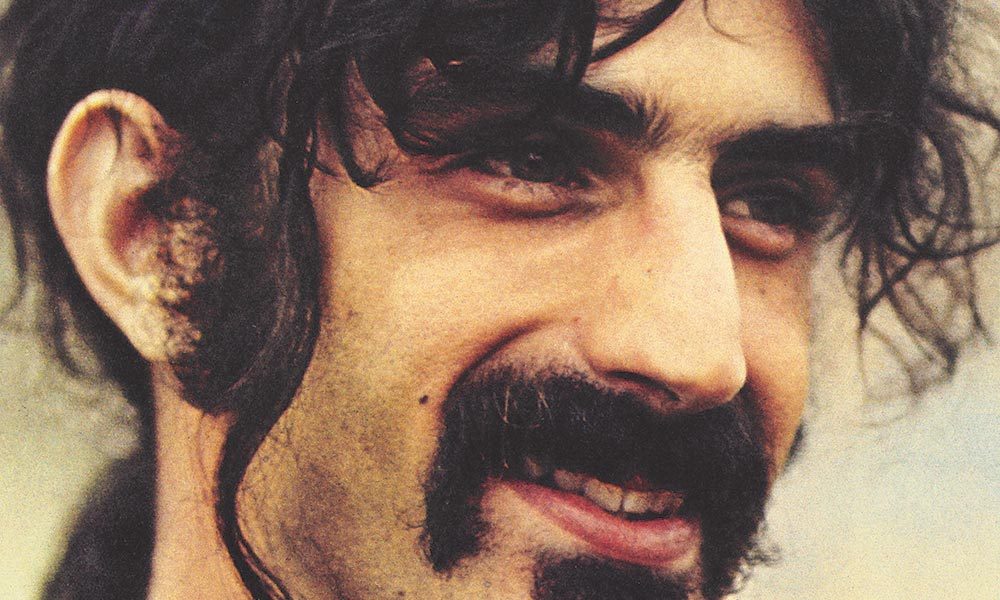
Born on December 21, 1940, Frank Zappa packed a ridiculous amount of great music into his 52 years on this planet. During his lifetime he made nigh-on 100 separate recordings, put out dozens of classy compilations, fistfuls of singles (some of them super rare), and was the subject of various tribute albums. Among such a plethora of work, the best Frank Zappa songs stand as a testament to a remarkable mind the likes of which we’re unlikely to see again.
Listen to the best of Frank Zappa on Apple Music and Spotify.
His legacy is equally vast: Paul McCartney admitted that Sgt Pepper’s Lonely Hearts Club Band was inspired in part by The Mothers of Invention’s debut, Freak Out!, while Zappa’s discography has touched on avant-garde, musique concrète, industrial, neo-classical and theatrical rock.
Zappa is one of the few artists operating in a rock or post-rock medium who deserves the epithet “genius.” He poked fun at both the establishment and the counterculture with varying degrees of venom. He was also an advocate for free speech and personal choice, and was quite prepared to accept any barbs that came his way. Celebrated by the Velvet Revolutionaries in Prague, he also became a friend of Czech writer and philosopher Václav Havel. Closer to home, Zappa earned a place within the upper echelons of Rolling Stone’s list of Greatest Guitarists Of All Time.
He could make metal, pop, rock, and blues, along with free-form jazz (à la Albert Ayler) and even classical. His own influence, meanwhile, ranges far beyond commercial success. Zappa had ideas to burn and would undoubtedly still be recording today, had it not been for his early death in 1993.
Above all, he was a great musician and a venerated songwriter. Below we offer a selection – and it can only be that – of the best Frank Zappa songs.
Zappa in the 60s
What better place to start than at the beginning: the opening track on the Zappa/Mothers 1966 debut, Freak Out! In “Hungry Freaks, Daddy,” Zappa addresses the countercultural view of the Great Society. America was in both class and social turmoil at this time, and a psychedelic treatment was undercut not with Frank’s often-quoted cynicism but a fair degree of analysis. One assumes that a certain David Bowie was in contact with this album, since his song “Moonage Daydream” seems to reference the mantra, “Freak out, far out…” and he may have lifted his son’s name from the soon-to-come song “Wowie Zowie.”
If you want to explore rock conspiracies, then unravel the ditty “Who Are The Brain Police?” A highly creepy Orwellian diatribe, it earns its place among the best Frank Zappa songs – not least for having freaked out its writer, who admitted that its gestation was a concern. “At five o’clock in the morning, someone kept singing this in my mind and made me write it down,” he recalled. “I will admit to being frightened when I finally played it out loud and sang the words.”
But Zappa wasn’t content to stay within the margins of hippie-speak. On “Brown Shoes Don’t Make It,” from the 1967 album Absolutely Free, the song’s bluesy origins give way to a cavalcade of musical styles – baroque, surf and rock opera among them. The lyric is a black comedy and another social satire, and the song remains the blueprint for Zappa’s revolutionary attempt to address the underground in a seven-plus-minute musical.
The Mothers’ third album, We’re Only In It For The Money, is an obvious send-up of materialist rock culture that even takes a poke at Sgt Pepper’s… For many Zappa fans, each track could make its case among the best of his songs. Perhaps the weirdest one is the short piece “Concentration Moon,” on which people – dissidents, minorities, et al. – are dragged away on buses and incarcerated. It’s no pastiche, but a heavy little number that still resonates.
Time for a breather. Time to “Stuff Up The Cracks.” The late ’68 album Cruising With Ruben & The Jets offers plenty of opportunity to unwind with a little experimental doo-wop. One of Zappa’s early loves, dating back to his own Italian-American roots, doo-wop has influenced many of the best Frank Zappa songs. Blessed with a cool Ray Collins vocal, some hot horns, and a sublime long-fade guitar solo from the main man, this is vintage Mothers, right down to the locked-down-tight rhythms of Roy Estrada and the percussive fills of Jimmy Carl Black and Arthur Dyer Tripp III. You might say this is atypical Frank, but then what is typical Frank?
Hot Rats (1969) is crammed with goodies, but the perennial live favorite, the instrumental “Peaches En Regalia” (also released as a single) retains its currency as one of the best Frank Zappa songs. From an early solo period when Zappa was embracing fatherhood with the birth of son Dweezil, this sumptuous track features studio-effect half-speed mastering and progressive fusion elements. Imagine it as a bizarre cross between Steely Dan and Weather Report, and enjoy the journey while Shuggie Otis plucks his bass and the masterful Ian Underwood carries the horn and organus maximus parts. Every time you play it you’re bound to hear something fresh.
Zappa in the 70s
Skipping with a heavy heart over Burnt Weeny Sandwich we land on Weasels Ripped My Flesh and an expanded Mothers featuring Lowell George (en route to Little Feat fame). Both live- and studio-based – and Mother-great throughout – it boasts a classic early Neon Park artwork and includes “My Guitar Wants To Kill Your Mama.” Nothing problematic here, just grand warp-rock with a surprisingly folky central acoustic guitar solo and the type of rolling blues rhythm one might also hear on a period Steve Miller Band album.
Recorded live at University Of California, Los Angeles, 1972’s Just Another Band From LA features The Turtles’ Howard Kaylan and Mark Volman (aka Flo & Eddie) and shouldn’t be overlooked. To get more bang for your buck, lay back and immerse yourself in the utterly madcap “Billy The Mountain,” a rock opera parody that slaps The Wizard Of Oz next to a sly allusion to Crosby, Stills & Nash’s “Suite: Judy Blue Eyes.” Given the experimental nature of this cracked tune, one suspects most of it was improvised on the spot after a few studio run-throughs, but that adds to the humorous tension.
Ever-prolific, Zappa and his Mothers were on fine form again during 1973’s Over-Nite Sensation, a flat-out comic rock extravaganza with more sexual innuendo than you can shake a stick at. Derided at the time, it sounds excellent today thanks to “Camarillo Brillo,” “I’m the Slime,” “Dinah-Moe Humm,” “Dirty Love,” et al. – but grab onto “Montana,” featuring Tina Turner and The Ikettes, as well as oddball singer Ricky Lancelotti. Fiendishly complex and funky, the track allows the ensemble to blow hard – none more so than Uncle Frank, whose long solo is a tour de force.
Zappa enjoyed a renaissance during this period, and 1974’s Apostrophe (’) would be his most successful album in the US. “Don’t Eat the Yellow Snow” kicked off a “suite” concerning an Eskimo and a fur trapper, but ends up as one of Frank’s zaniest and most profane tunes. Don’t let that put you off. It’s one of the best Frank Zappa songs of the mid-70s. Audacious rhythms and percussion proliferate, and DiscReet even released the song as a single, which helped the parent album break into Billboard’s Pop Top 10. Remarkable, considering the subject matter. (“Cosmik Debris” is another highlight from the standout album.)
For something slightly less leftfield, try “Cheepnis,” a delicious item on the live-album-with-overdubs Roxy & Elsewhere. As an experiment in echoing the FX on B-movies, this is hard to beat, with the new-look Mothers including Napoleon Murphy Brock and pioneering funkster George Duke.
The Mothers concept ends on One Size Fits All, which opens with the progressive fusion of “Inca Roads” but generally sends itself up thanks to a sequence of time signatures and a famous Zappa guitar solo.
During another prolific year, Zappa teamed up in earnest with his labelmate, friend, and kindred madman, Captain Beefheart (aka Don Van (Glen) Vliet). However, the results were less avant-garde than one might expect. Every track on 1975’s Bongo Fury satisfies, but we’ve picked out the appealing “Advance Romance” for its parodic but affectionate insight into how a love song is written and deconstructed. Soulful mid-70s blues.
The more minimalist approach taken on Zoot Allures brings old tropes back into the fold: doo-wop and blues-rock in particular. Disco, German culture, and sexual stereotypes all crop up in the lyrics, but for dark social commentary lock into “Wind Up Workin’ In A Gas Station,” where the sardonic dismantling of the work ethic manages to be blackly comic.
Without decrying Studio Tan and Sleep Dirt – fine albums both – take a look at Sheik Yerbouti, a monumental double-album recorded at London’s Hammersmith Odeon and The Palladium, New York. One song that didn’t get much homegrown airplay was the scatological “Bobby Brown,” in which Zappa’s delight at ignoring the boundaries of taste reaches a zenith. Hugely popular in Northern Europe, the song may be Zappa’s most successful commercial moment: the single shifted enough copies to go gold (250,000 satisfied customers in Germany alone) and became a firm live favorite.
In 1979, Zappa increased his fascination with Xenochrony and progressive guitar solos, but also enjoyed a period of intense exposure on North American FM radio. “Joe’s Garage” (from Joe’s Garage Act I) is based on a tongue-in-cheek, put-down of garage punk but, by using the God-fearing epiphany of the protagonists, it mutates into a punk classic that sticks it to corporate censorship while being unashamedly misanthropic.
On the same album, you’ll find “Watermelon In Easter Hay,” a song that’s often cited as being Zappa’s favorite composition. Much lighter than anything else on Joe’s Garage, the fluid guitar solos, occasionally reminiscent of Pink Floyd’s David Gilmour, make it worth the price of admission alone, and it is a testament to Zappa’s compositional skill. (The original title was “Trying To Play A Solo With These Guys Is Like Trying To Grow A Watermelon In Easter Hay.” Bit long, maybe.)
Zappa in the 80s
After a sequence of albums dedicated to the art (and debunking) of guitar histrionics, Zappa enjoyed a later hit with “Valley Girl,” a song that introduced fans to the culture of San Fernando schoolgirl “Valspeak.” The outcome was a double-edged sword, since Zappa was often viewed as a novelty act, but the track transcends its own joke and stands as one of the best Frank Zappa songs of the era. It elevated its inspiration (and vocalist), Moon Unit Zappa, along with his then 14-year old daughter, to the status of a star in her own right. Better still, it enabled the album Ship Arriving Too Late To Save A Drowning Witch to break the Top 30, while the single peaked at No.12.
By the 80s, it was arguable that Zappa, while not turning his back on rock music, had become far more interested in his other loves: Boulez, Stravinsky, Eric Dolphy, and post-bop free jazz in general. To complete this journey, dig into the version of “Uncle Meat” on 1993’s The Yellow Shark, the final disc released during Zappa’s lifetime. Revisiting one of the best Frank Zappa songs of the 60s, this version, featuring the Modern Ensemble, helps wrap up a career of immense achievement. Tom Waits (who, as a fledgling artist, once supported Zappa on tour) described it best: “The ensemble is awe-inspiring. It is a rich pageant of texture in color. It’s the clarity of his perfect madness and mastery. Frank governs with Elmore James on his left and Stravinsky on his right. Frank reigns and rules with the strangest tools.”
One of Zappa’s final performances is the album’s closer, the epic “G-Spot Tornado,” on which he overcame his illness and marched on stage in Frankfurt in order to conduct the Ensemble and received the ovation of his life. We won’t see his like again.
Listen to the best of Frank Zappa on Apple Music and Spotify.


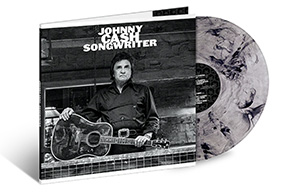
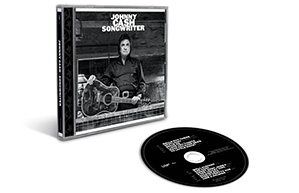




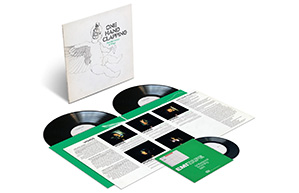
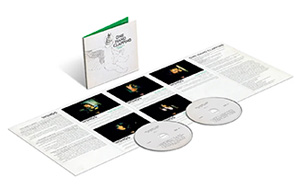
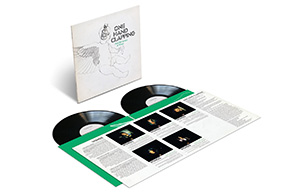
Paul Bader
July 8, 2016 at 5:17 pm
Is over all titten geil.
Eric Kennedy
December 29, 2016 at 12:06 am
“Music is the best.” Thanks, Frank.
Les
October 23, 2018 at 4:30 pm
Frank Zappa was my teenage years. RIP
Wild Bill
July 16, 2019 at 3:48 am
The side of Apostrophe that contains Nanook’s Revenge, Don’t Eat The Yellow Snow, and Cosmik Debris is like one long killer single–the ENTIRE SIDE (of what was once a vinyl record album, for those who know what I’m talking about, and who remember what that was).
Pure genius–and by far, the BEST material Zappa ever did, bar none.
Great to listen to on those cold winter nights, along with Dark Side of the Moon, Wish You were Here, A New World’s Record by ELO, a side or three of some Alan Parsons Project mixed in, and enough alcohol in my system to groove beautifully to all of it (the alcohol isn’t actually necessary, but it helps…)
Happy listening!!…..
Paul
December 6, 2020 at 3:25 pm
Hey Wild Bill! I like the company you have place APOSTROPHE in. If not familiar, I suggest you check out the 1st side of Amon Duul II’s “Vive La Trance.”
Larry
March 19, 2023 at 2:12 am
No willie the pimp